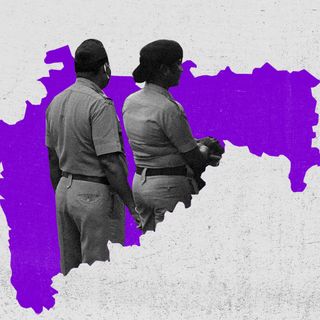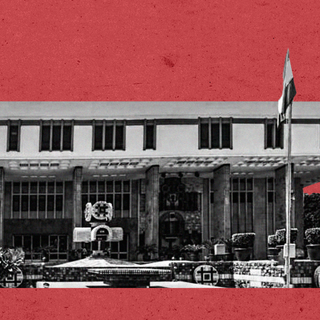The Union Home Ministry on Wednesday notified the chief secretaries of all states and Union Territories that trans persons must be placed in separate wards in prisons. This is to protect them from exploitation and safeguard their rights, the Ministry said.
In the communication, the ministry cited the Transgender Persons (Protection of Rights) Act, 2019 as one that prohibits discrimination, and provides for the recognition of trans persons’ identity. Accordingly, “A separate enclosure or wards for transgender inmates for transmen and transwomen may be ensured and also such enclosures should be separate from male and female wards or enclosure.”
The communication also provided for separated toilets and shower facilities for trans men and women — emphasizing their right to dignity and privacy. Other directions involved prison authorities respecting the self-identity of trans persons at all times — be it with respect to lodging, medical examinations or interrogations, care, or more. Medical officers are also to be trained on gender-affirmative care, and in furtherance of that, training modules must be created with the help of representatives from trans communities to develop a framework to facilitate a better understanding of gender identity, gender dysphoria, and human rights.
The MHA further suggested that the process of acquiring a certificate affirming trans identity may be initiated with the help of prison authorities, should an individual so request it. Searches, moreover, are to be conducted by people of the person’s own gender identity, and never for the purpose of determining an inmate’s sex.
The move, at first glance, appears to be a positive step, given the history of sexual violence and dysphoria that trans persons face in prisons. However, the notification is based on the 2019 Act, which itself was met with much protest from the trans community.
For one, it negates the right to self-determination of gender and mandates a “certificate” to be approved by the District Magistrate. Unless an individual already has the certificate, they are often left to the mercy of prison officials, according to reports. Although the new circular suggests that self-identity must be respected, there is not much that has been cemented by law to guarantee this respect.
Related on The Swaddle:
India’s Healthcare System Is Still Failing Queer‑Trans People. A Public Health Movement Can Change That.
Sai Bourothu, a project officer with the Commonwealth Human Rights Initiative and author of the report Lost Identity: Transgender Persons in Indian Prisons, notes that while separate barracks can help, it must be left to the individual to choose whether they want to be housed separately or in the prison conforming with their gender-identity.
Separate prisons could run into the risk of segregation too; “Within that framework, among others, the transgender community too is looked at as a threat… as someone to be protected from,” she told The Wire.
An investigation by The Wire revealed some startling abuses in the prison system that trans men and women find themselves facing. Trans women in particular are at heightened risk of sexual assault and abuse in male facilities, and their pleas for being housed in the women’s facilities are often ignored. “In jail, the transwomen were placed in a “separate ward” assigned only to those suffering from infectious diseases like tuberculosis, leprosy, scabies, and HIV. The prisoners here are neglected, and so is the barrack,” The Wire notes.
In the women’s ward, trans men are subject to dehumanizing searches, questions, and comments by prison authorities — all of which can induce severe dysphoria, sources told The Wire. Moreover, the existing separation of trans people is only up to a certain extent; when it comes to showering facilities, for instance, individuals’ privacy is violated.
Given the provisions of the 2019 Act, the circular also doesn’t ensure that statistics regarding trans persons in prisons are recorded accurately. Currently, the National Crime Records Bureau’s figures paint an inaccurate picture of trans prisoners, because of how prison authorities classify people in a binary “male” or “female” framework.
The notification, moreover, makes no mention of non-binary people or those who don’t strictly identify as male or female. “As far as prisons are concerned, the person concerned should have the right to decide where he or she wants to be inside the prison,” Chayanika Shah of the Labia Foundation, a queer feminist LBT Collective, told Hindustan Times. This means a more expansive framework is required to protect the rights of all individuals within prisons.
“Due to their membership to their marginalised social group and their status as ‘prisoners’, trans people in prisons face ‘double marginality’,” The Wire notes, adding that sensitization is key to ensuring a less violent, dehumanizing environment for trans prisoners in an already oppressive institution.




